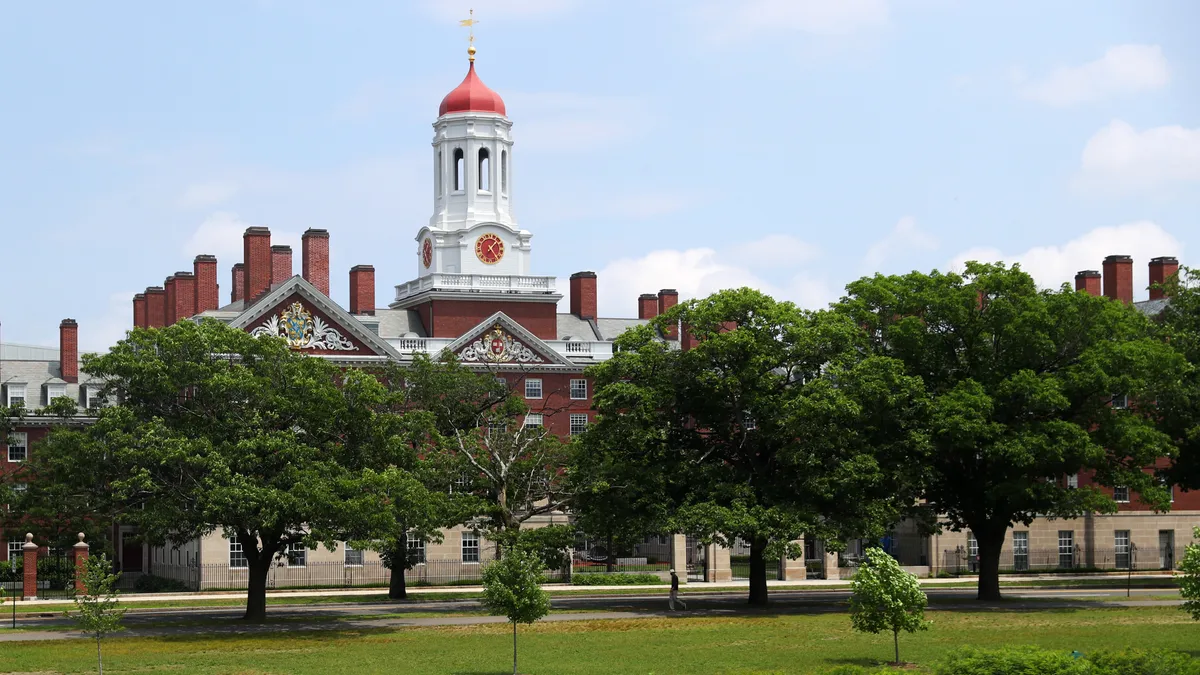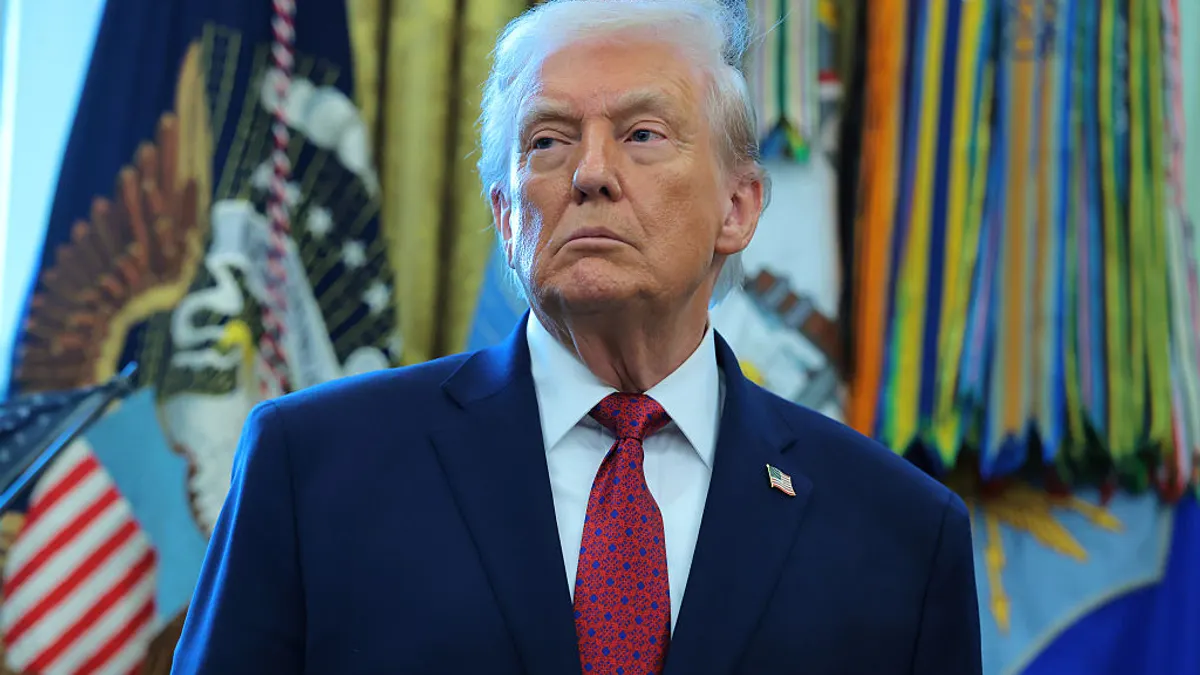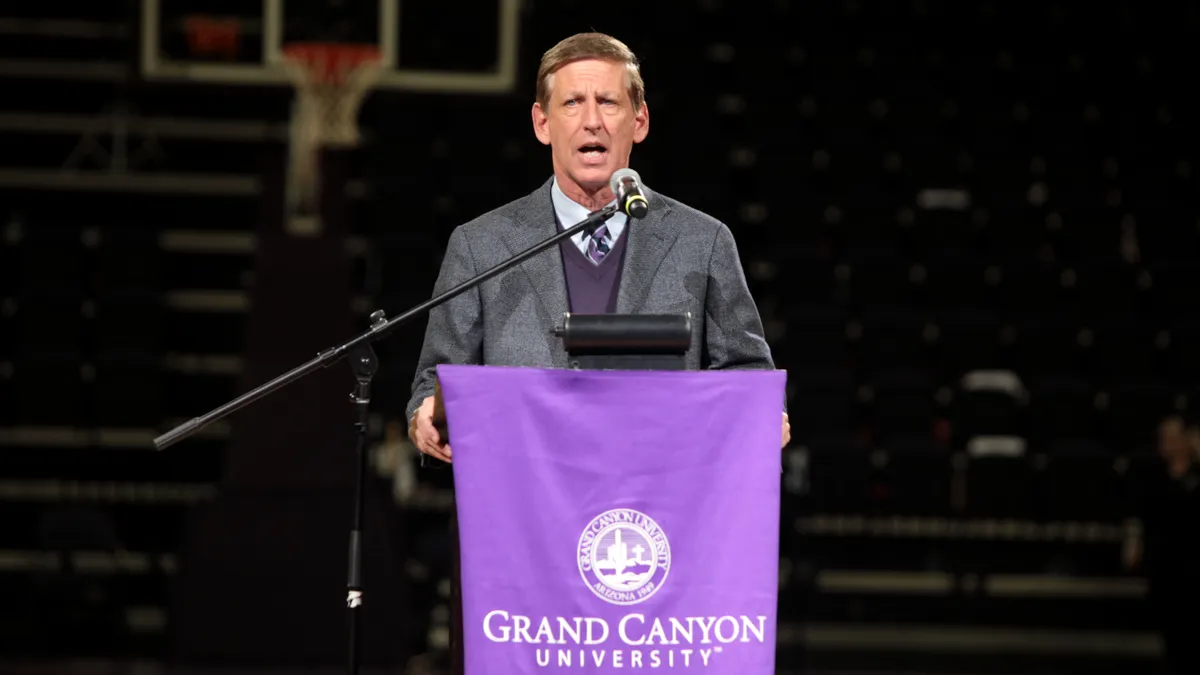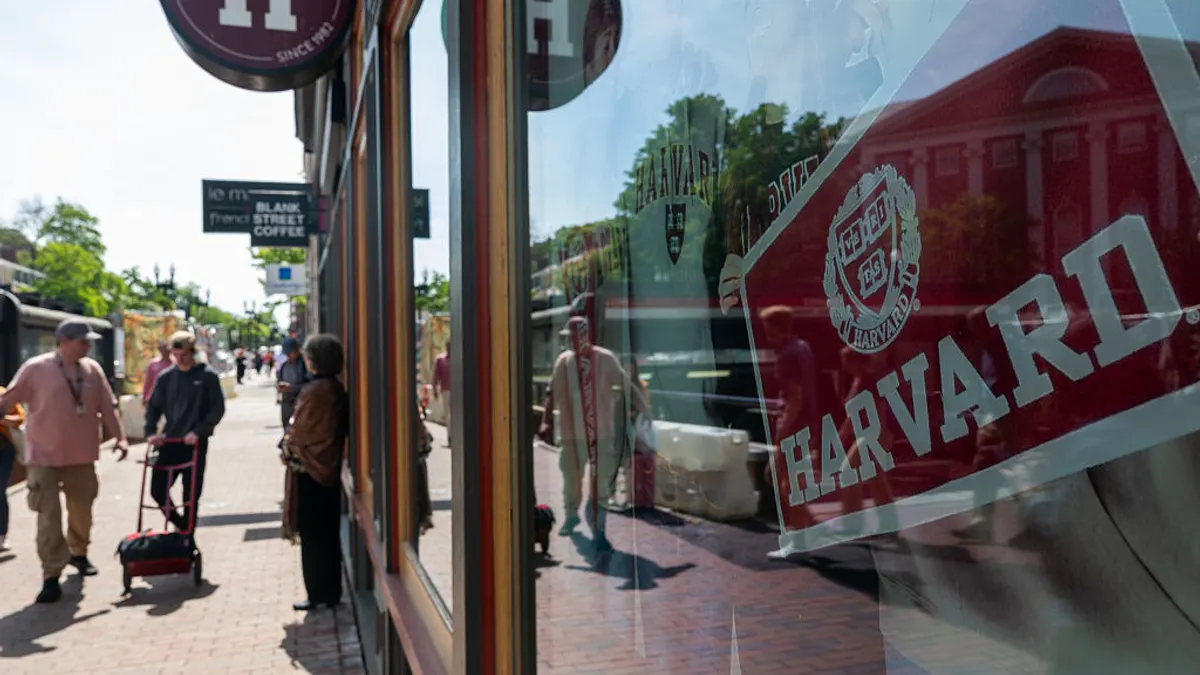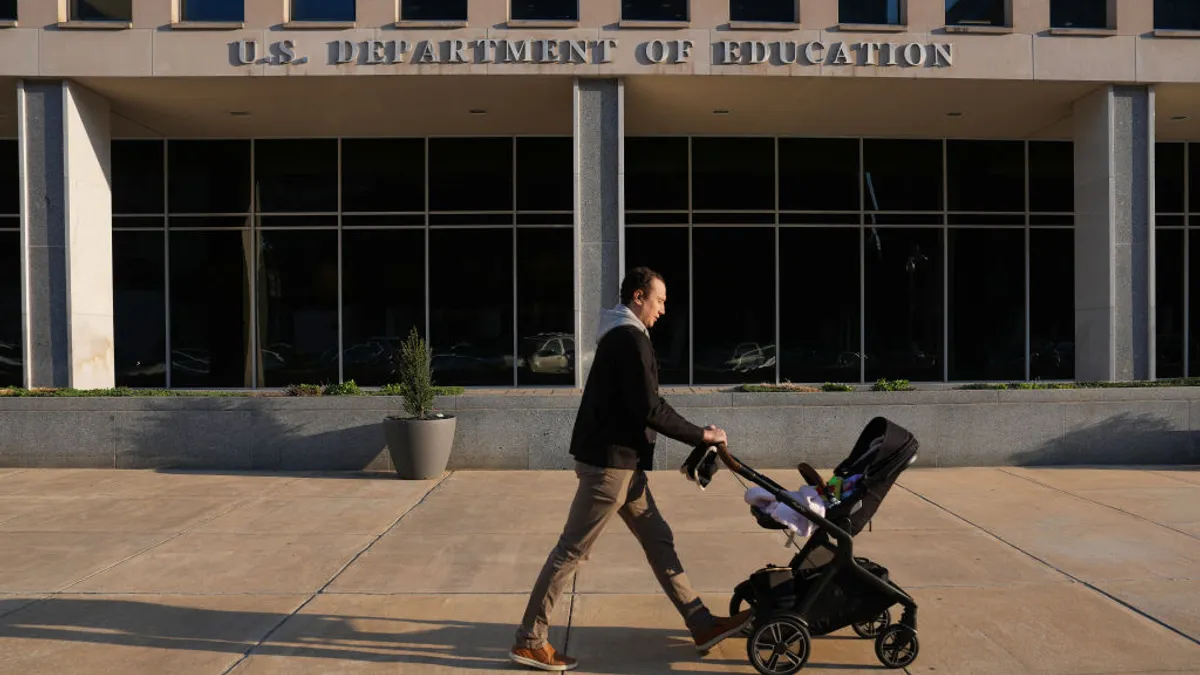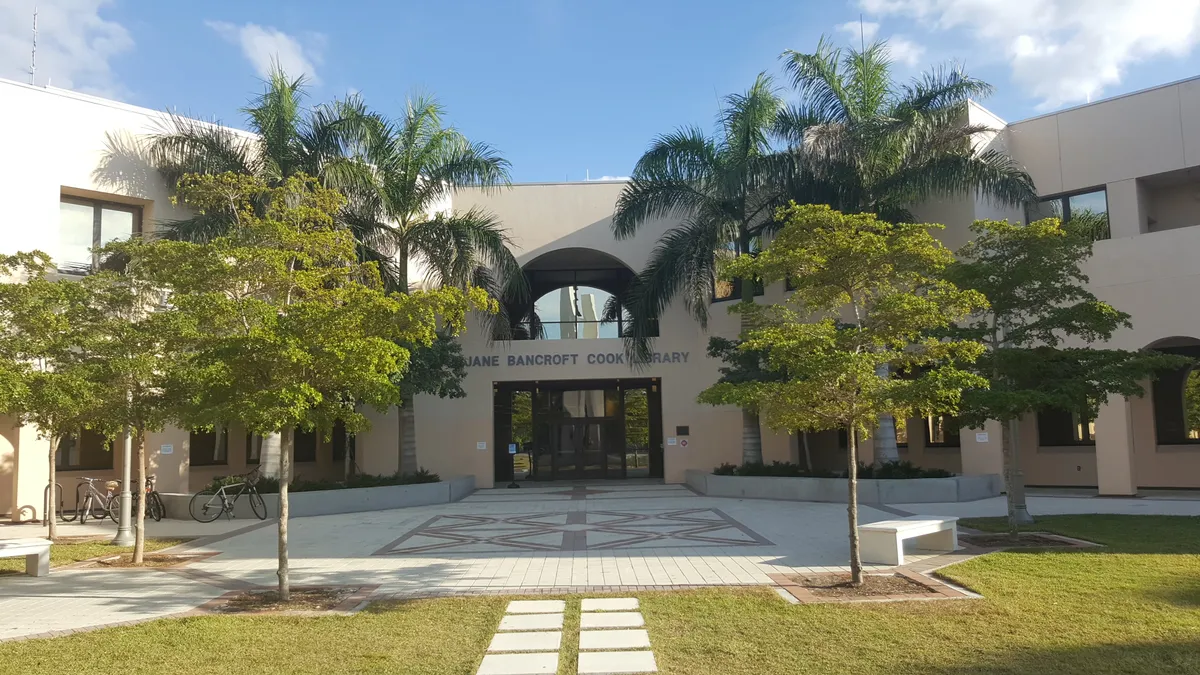The tweet by the Indiana University Bloomington professor went unnoticed at first. Two weeks passed before the internet unearthed what Eric Rasmusen, a tenured professor of business economics and public policy, posted on Nov. 7: an essay titled "Are Women Destroying Academia? Probably."
In his tweet, Rasmusen pulled a line from the piece: "geniuses are overwhelmingly male because they combine outlier high IQ with moderately low Agreeableness and moderately low Conscientiousness." It was published by Unz Review, a website purporting to share "interesting, important and controversial perspectives" eschewed in the mainstream media.
Outrage ensued, launching a national debate about the role of public institutions in weeding out prejudice on campus when they must also meet constitutional free speech obligations.
The day after Rasmusen's tweet went viral, Indiana U provost Lauren Robel declared in a public statement that his views were "racist, sexist, and homophobic."
His opinions did not "require careful parsing" for her to reach this conclusion, Robel wrote. Rasmusen in previous postings had deemed not only women but also gay men and black students unfit for academe, according to the provost.
To avoid subjecting students to such bigotry, Robel wrote, the university would force Rasmusen to engage in double-blind grading. Administrators have set up alternative sections of his courses for students who do not wish to enroll in his classes.
But to those who cried out for Rasmusen's dismissal, Robel wrote, as a public university, Indiana U could not infringe on his First Amendment rights to disseminate his views, even if they were, as she put it, "loathsome."
"The First Amendment is strong medicine, and works both ways," Robel wrote. "All of us are free to condemn views that we find reprehensible, and to do so as vehemently and publicly as Professor Rasmusen expresses his views. We are free to avoid his classes, and demand that the university ensure that he does not, or has not, acted on those views in ways that violate either the federal and state civil rights laws or IU's nondiscrimination policies."
Administrators have made similarly powerful condemnations before, but they have generally applied to white supremacists who have circulated college campuses on speaking tours, or anonymous racist fliers or graffiti. In 2017, University of Florida President Kent Fuchs tore into Richard Spencer, a key figure of the alt-right movement, when Spencer scheduled a talk there, denouncing him as racist and abhorrent.
Pressure from students for university officials to be outspoken on these issues has amped up in recent years (calls for Rasmusen's firing were widespread).
Experts say Robel's extraordinary, perhaps unheard of, response will serve as a template for other administrators attempting to walk a legal tightrope on cases that have historically remained largely out of the public eye: balancing the civil liberties of problematic faculty members with the inclusive environment many students demand.
‘Not always the first instinct'
With her statement, Robel, formerly the dean of Indiana U's Maurer School of Law, was attempting to outline in the clearest possible terms the institution's legal responsibilities, and simultaneously assuage students and commentators on both ends of the political spectrum, said Michael Olivas, director of the Institute for Higher Education Law and Governance at the University of Houston.
Those on the left generally called for action against Rasmusen while those on the right argued punishing him would prove the narrative that colleges are liberal bastions hostile to conservative views.
Robel seemed to have succeeded in moving quickly on the statement and appealing to both groups. Will Creeley, senior vice president of legal and public advocacy for the Foundation for Individual Rights in Education, a civil liberties watchdog, said it "threaded the needle in a useful way."
"To recognize the issues and do so fairly forthrightly, that is not always the first instinct of administrators," Creeley said.
Still, some were adamant keeping a bigoted professor was creating a "toxic double standard," as one former Indiana U graduate student characterized the situation. Robel largely drew praise for her message, which the university's general counsel vetted, Indiana U spokesperson Chuck Carney, told Education Dive.
"It hit exactly the right notes and no one has been quite vociferous in their defense of him," Olivas said of Robel's statement. "My reading of the whole thing is that she's very thorough, very thoughtful, and would never do something in public that wasn't well-considered."
‘Crowdsourced' employment
College leaders, particularly at public institutions, have struggled with challenges to free speech from forces both outside and within the institutions.
Episodes involving professors are not infrequent, but officials are no longer able to shield them from the public, said Peter Lake, director of the Center for Excellence in Higher Education Law and Policy at Stetson University, in an interview with Education Dive.
The 2015 protests on race at the University of Missouri proved students have the power to influence decisions because they can opt to enroll elsewhere, Lake said. U of Missouri students peeled away from the institution and freshman enrollment at its flagship campus fell more than 35% the following two years.
"Students will just drift away, that's the big leverage, the implicit threat of a boycott," Lake said. "We've entered an era now, where employment, all employment in the academy, staff and faculty, is crowdsourced."
Limited precedent — so far
Though pundits largely agreed Indiana U operated within its legal bounds, others have made the case that even the teaching restrictions imposed on Rasmusen violate his free speech rights.
On a personal webpage detailing his take on what he calls the "kerfuffle," Rasmusen claimed attorneys say he would have grounds for a defamation lawsuit.
"Indiana University is not discouraging bias, but encouraging it, even requiring it, as a condition of teaching," Rasmusen wrote on the website.
Institutions do not need to guarantee tenured professors a particular course load, Josh Blackman, an associate professor of law at the South Texas College of Law Houston, wrote for well-known conservative blog The Volokh Conspiracy. But Blackman argued the university's solution does not address the underlying legal concern ー that Rasmusen is creating a hostile environment in his classes.
And Lake said the notoriety from the controversy would "absolutely" follow Rasmusen to another job if he left.
In 1992, a federal appeals court upheld that the City University of New York (CUNY) system infringed on the constitutional rights of Michael Levin, a professor who made denigrating comments about black people in writings outside the classroom. Officials set up "shadow" classes for students who were uncomfortable with him.
"[A]lthough (CUNY) contended ... that they created the alternative sections because Professor Levin's expression of his theories outside the classroom harmed the students and the educational process within the classroom, the district court saw no evidence that this was a factually valid concern," the court's opinion reads.
In other words: Levin's bigoted opinions did not affect students' academics. The appeals court ruling was in the 2nd Circuit, and would not directly apply to Indiana U, located in the 7th Circuit.
Indiana U's Carney said the university has received phone calls with concerns about Rasmusen's teaching, but as of his conversation with Education Dive last week no one had filed a formal complaint against him. Carney declined to speculate what might cause the university to fire a professor with tenure.
"Our provost showed immense leadership," he said. "This was something where she took the reigns and made a very strong statement … If I were at another institution, I would be reading up on this."






